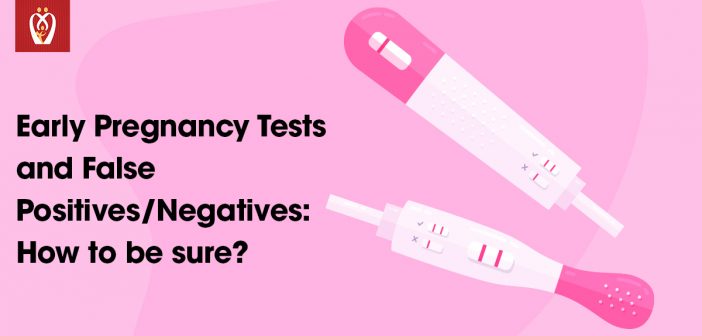Early Pregnancy Tests and False Positives/Negatives: How to be sure?
An early pregnancy test can tell you if you’re expecting.
First, How does an Early Pregnancy Test Function, and What is it used for?
Pregnancy tests look for a hormone called human chorionic gonadotropin in your urine or blood (hCG). After a fertilized egg adheres to the uterine wall, your body produces this hormone. This occurs approximately six days after fertilization. hCG levels rapidly climb, doubling every 2 to 3 days.
What is the accuracy of early pregnancy tests?
Urine pregnancy tests at home are usually 99 per cent accurate. Even more precise is blood testing.
The accuracy of a home test is determined by:
- How carefully you adhere to the directions
- When do you ovulate, and how long does it take for the egg to implant?
- When do you take the test after you’ve found out you’re pregnant?
- The pregnancy test’s sensitivity
When Should You Get a Pregnancy Test?
Some early pregnancy tests can detect hCG even if you haven’t missed a period yet. However, if you wait until the first day of a missing period, the results will be more accurate.
If you do the test first thing in the morning, the results may be more accurate when your pee is more concentrated.
Where can I buy a pregnancy test at home?
Without a prescription, you can get a home pregnancy test at a drugstore. The brand determines the price. However, the majority of examinations are not extremely costly.
What are the implications of the pregnancy test results?
A line, a colour, or a symbol such as a “+” or “-” sign may appear as a result. The words “pregnant” or “not pregnant” appear on digital tests. It’s critical to understand what a favourable or negative outcome entails.
You’re pregnant if you get a positive result. This holds true regardless of how little the line, colour, or indication is. If you receive a positive test, you should contact your doctor to discuss your options.
A false-positive result can occur under extremely rare circumstances. This indicates that you are not pregnant, but the test shows that you are. For example, if you have blood or protein in your pee, you may get a false-positive result. In addition, certain medications, such as tranquillizers, anticonvulsants, hypnotics, and fertility medicines, can produce false-positive results.
If the test comes back negative, you’re probably not pregnant. However, if the test has passed its expiration date, you may be pregnant. Here are a few reasons why you may receive
- You took the test incorrectly.
- You took the test too soon.
- Because you consumed a lot of drinks immediately before the test, your pee is too diluted.
- Certain drugs, such as diuretics or antihistamines, are in your system.
If you obtain a negative result, retest in a week or so to double-check. Some home pregnancy tests recommend doing this regardless of your initial results.
How to Avoid an Early Pregnancy Test Error
When you take an early pregnancy test, the accuracy of the result is probably your primary concern. Unfortunately, this is a common concern among many people, and it might remain even after they receive an answer. While pregnancy tests are generally reliable, they are not without flaws.
Avoid Making Common Errors
When using a home pregnancy test, various problems can lead to incorrect results. When using a home pregnancy test, there are two types of mistakes to watch out for: timing issues and interpretation errors.
Timing.
You took the exam too soon, didn’t read the results for long enough, or read the results for too long.
Interpretation. You didn’t trust a positive test result (false positive early pregnancy tests are rare), or you didn’t double-check a negative test result (which can involve retesting later)
Take the Test at the Appropriate Time
It used to be simple to decide when to take a home pregnancy test: you waited until you missed your period and then tested. You may now obtain an early pregnancy test that claims to tell you if you’re pregnant before your period has been missed.
While these tests can yield reliable results, it all relies on the individual. The amount of hCG in a person’s urine varies depending on whether or not they are pregnant. This issue is caused by the timing of taking the test, not by the test itself.
Call your doctor if you take the test twice and obtain different results. Confirming the results with a blood test is a smart idea.
Call your doctor or the phone number indicated with the pregnancy test if you have any other questions regarding the pregnancy test or the results.




